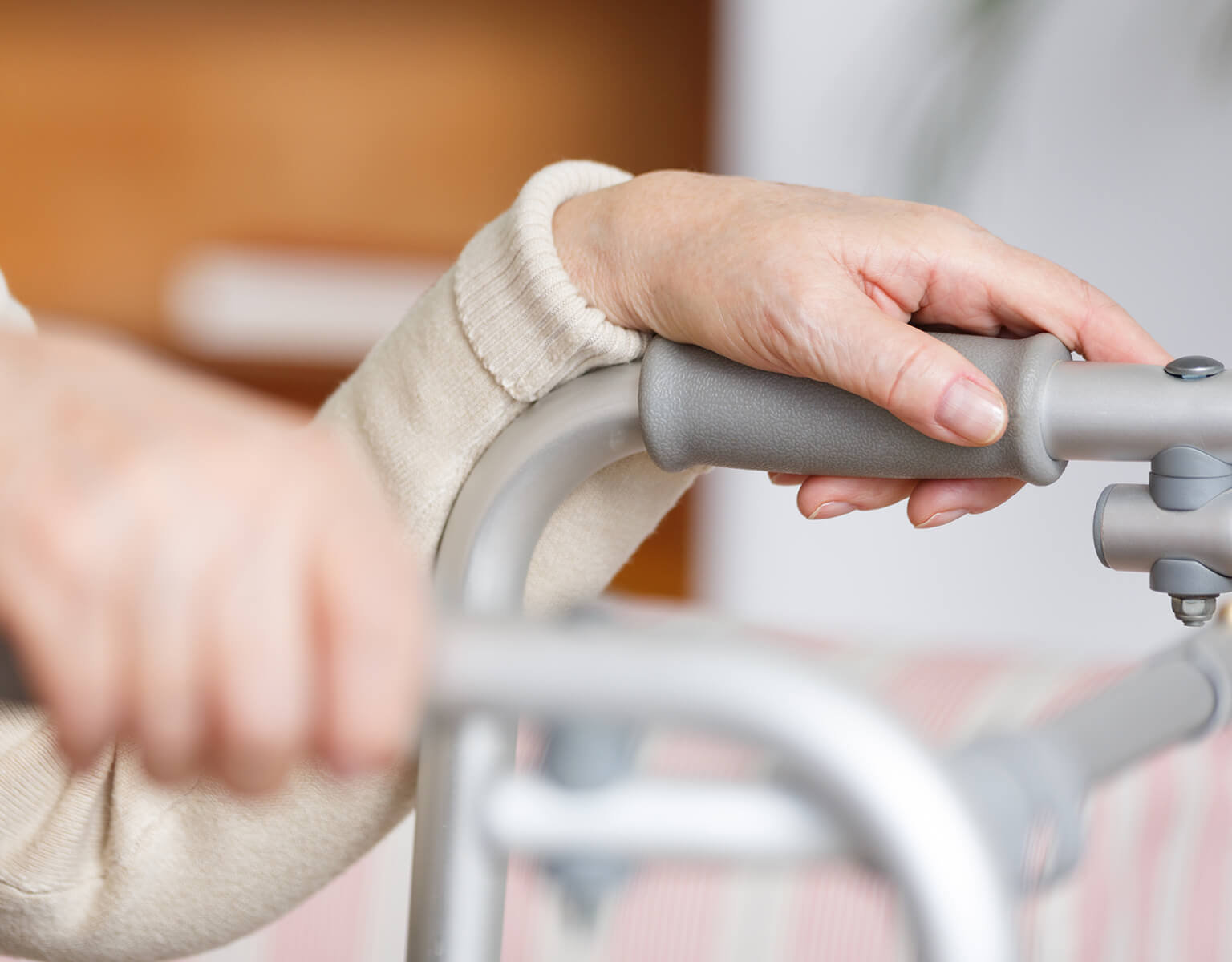Managing a Loved One's Incontinence

Helping a loved one put on an incontinence product or clean them up after experiencing leakage can be uncomfortable and embarrassing for all involved.
Applying the Incontinence Product Properly
When used correctly, Prevail® incontinence products allow wearers to lead an active life with comfort, cleanliness, and confidence. In fact, Prevail® is a leading incontinence in healthcare.
Make sure your loved one is wearing the correct product type, absorbency level and size for their needs. The product should rest snuggly against their body and you should never use more than one product at a time. While wearing multiple products may seem more protective, it actually hinders the absorbency process and can cause product leakage.
Changing the Product
Make sure you're changing your loved one's incontinence product frequently enough to ensure your loved one is comfortable and does not develop skin irritation. When a product is worn too long, moisture and bacteria may develop causing this irritation. You should change the product when you notice urine or bowel leakage.
The Importance of Personal Hygiene Care
Each time you change a product, thoroughly cleanse the areas that came into contact with urine or BM. Especially the genital and anal regions. After removing the soiled product, cleanse the areas from front to back to reduce the chance of infection. Prevail® disposable adult washcloths are recommended for this process. They provide a quick, efficient clean up between changes. Soap and water can be drying and harmful to the delicate skin area.
By following this procedure every time, you may decrease the chance of your loved one getting a Urinary Tract Infection (UTI).
Using incontinence products can help you reduce the costs of leakage management while improving your loved one's quality of life.
Rashes Related to Incontinence
A skin rash or Incontinence Associated Dermatitis is caused by urine being left on the skin for too long, resulting in skin damage. Skin rashes may also occur when an incontinence product isn't applied properly. Make sure the product is the right size and fits close to the body. That’s why it is important to change soiled products promptly, provide hygiene care and apply the product properly. If you loved one develops a skin rash you may want to contact their healthcare provider for treatment options.
Odor
To remove the smell of urine from clothing, add 1/2 cup of vinegar to your wash load. Then, use the hottest water the fabric can handle. Always be sure to follow the instructions printed on the tag of the clothing. Prevail® protective hygiene is a big help with odor, too. Our products contain Odor Guard™, which helps neutralize odors before they even start. Customers who switched to Prevail® protective hygiene products reported less urine odor.****
Troubleshooting How to Manage a Loved One's Incontinence
If you're concerned about the performance of your loved one's incontinence product, we're here to help. Take a look at these troubleshooting guidelines to ensure your loved one is wearing the right product, the ideal size, and that you applied the product properly.
Product Selection
You should select a product based on your loved one's gender, type of incontinence, and level of leakage. If your loved one is leaking though the product, they may need to try something with higher absorbency or a smaller size. Please read through the Choosing the Right Product page to make sure you selected the best product for their needs.
Size Selection
Use our Height/Weight Charts to make sure your loved one is wearing the right size. You should have their current measurements handy and make sure they're accurate. If they're reluctant to share their measurements, remind them how important sizing is for product performance. Products that are too small will be uncomfortable and products that are too large will leak due to sagging.
You are not alone!
Caring for a loved one with incontinence can be challenging and overwhelming. Remember that millions of individuals face these challenges daily!
Don't feel as though you need to solve everything by yourself. Our book, Caring with Dignity: The Caregiver’s Guide to Incontinence, is a one-stop shop designed to support caregivers who do not have a medical background by translating clinical expertise into easy-to-understand examples, tips and advice. When in doubt, also reach out to your loved one's healthcare provider for expert answers and a better knowledge of their treatment options. You can also access our online eNurse program 24 hours a day for questions related to the right product, right size and application. At Prevail®, we're here for you as you care for the people who matter most.
****according to a survey conducted in Q4 2017 among 128 caregivers and patients using absorbent adult incontinence products in the home

Try Prevail Free
Get a free sample of our protective hygiene products.





